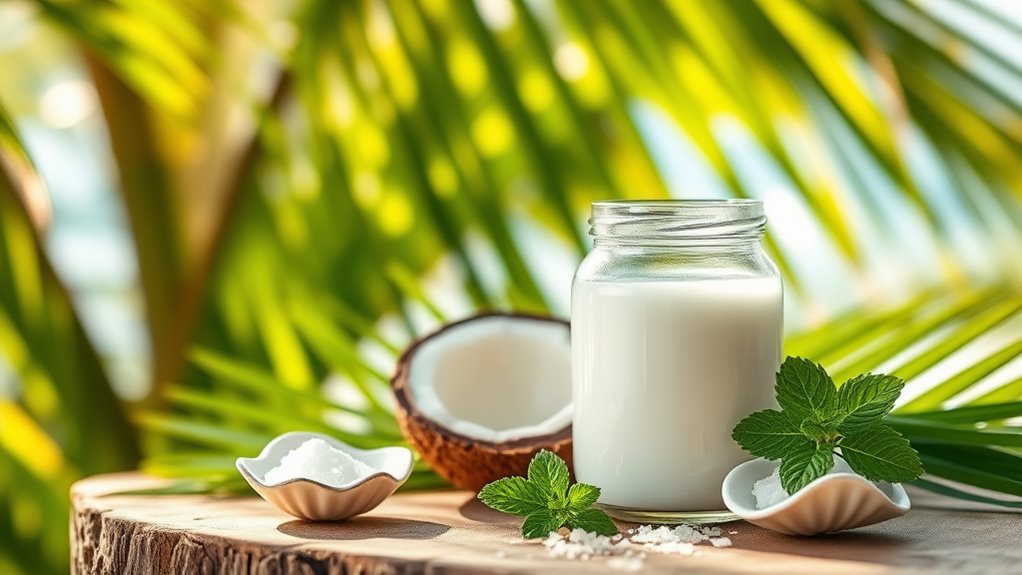The Ultimate Natural Remedy for Aching Knees!
You can ease your aching knees naturally through a powerful three-part approach. Start by adding anti-inflammatory foods like salmon, berries, and leafy greens to your diet, along with proven supplements like turmeric and glucosamine. Combine this with gentle exercises such as wall sits and straight leg raises to build strength. Simple lifestyle changes, including maintaining a healthy weight and wearing supportive shoes, will help protect your joints. Discover how these natural solutions work together to provide lasting relief.
Understanding Common Causes of Knee Pain
Whether you’re an athlete or simply aging, knee pain can significantly impact your daily activities. Like many of us who seek soothing knee discomfort ideas, you’ll want to first understand what’s causing your pain. The most common culprits include osteoarthritis, which develops as cartilage wears down between joints, and overuse injuries from repetitive movements.
You’re not alone if you’ve noticed pain after sitting for long periods or climbing stairs. These symptoms often stem from muscle imbalances, excess weight putting strain on your joints, or inflammation from conditions like rheumatoid arthritis. Understanding the root causes of your knee pain is crucial because it’ll help you choose the most effective natural remedies for relief.
Sports injuries, such as torn ligaments or meniscus damage, can also lead to persistent discomfort. Some of us experience knee pain due to poor posture or wearing unsupportive footwear. Understanding your specific cause is crucial because it’ll help you choose the most effective natural remedies for relief.
Powerful Anti-Inflammatory Foods for Joint Health
When it comes to managing knee pain naturally, your diet plays a crucial role in reducing inflammation and supporting joint health. You’ll want to incorporate foods rich in omega-3 fatty acids, like salmon, mackerel, and sardines, which help combat joint inflammation. Berries, especially blueberries and strawberries, pack powerful antioxidants that protect your joints from damage. Don’t forget to add leafy greens like spinach and kale to your meals – they’re loaded with vitamins C and K that support collagen production and bone strength. Turmeric, ginger, and garlic aren’t just flavorful additions; they’re natural anti-inflammatory powerhouses that can help ease your knee pain. Green tea is another excellent choice, as it contains polyphenols that reduce inflammation and protect cartilage. Additionally, ginger’s anti-inflammatory properties can also aid in alleviating discomfort in various parts of the body, including the knees. For the best results, pair these foods with nuts and seeds high in vitamin E and zinc, which help repair and maintain healthy joint tissue.
Essential Herbs and Supplements for Knee Relief
Several powerful herbs and supplements can provide natural relief for your aching knees.
You’ll find that turmeric, with its active compound curcumin, works wonders in reducing joint inflammation and pain. Boswellia, also known as Indian frankincense, helps preserve cartilage and improve knee mobility when you take it regularly.
Don’t overlook glucosamine and chondroitin supplements, as they’re proven to support cartilage repair and reduce discomfort in your knees. MSM (methylsulfonylmethane) can decrease joint inflammation while improving flexibility.
For enhanced results, try ginger supplements, which contain potent compounds that fight inflammation just like many prescription medications.
Consider adding Devil’s Claw to your daily routine – it’s particularly effective for arthritis-related knee pain.
Remember to pair these supplements with omega-3 rich fish oil capsules, as they’ll help lubricate your joints and reduce inflammatory markers throughout your body. Additionally, incorporating anti-inflammatory foods into your diet can further enhance your knee health.
Always consult your healthcare provider before starting any new supplement regimen.
Gentle Stretches and Exercises to Strengthen Knees
To maintain healthy knees and reduce discomfort, incorporating gentle stretches and targeted exercises into your daily routine can make a significant difference.
You’ll want to focus on movements that build strength while protecting your joints from further strain.
Start with wall sits, holding the position for 10-30 seconds to strengthen your quadriceps. Next, try straight leg raises while lying on your back – these work your thigh muscles without putting pressure on your knees.
Don’t forget hamstring stretches, which you can do seated or standing.
For a gentle but effective exercise, try partial squats using a chair for support. Step-ups on a low platform can help build stability, while calf raises improve overall leg strength. Additionally, incorporating low-impact activities like swimming or cycling can further support knee health.
Remember to move slowly and listen to your body. If you’re part of a fitness group or work with a trainer, they can help ensure you’re using proper form.
Always warm up first, and stop if you feel sharp pain.
Daily Lifestyle Changes to Protect Your Joints
Beyond exercise and stretching, simple changes to your daily habits can dramatically improve knee health and reduce joint stress.
You’ll want to maintain a healthy weight since every extra pound puts additional pressure on your knees. When you’re standing, keep your weight evenly distributed and avoid locking your knees for long periods.
Choose supportive footwear that fits well and replace worn-out shoes regularly. If you’re working at a desk, get up every hour to prevent stiffness.
When lifting objects, bend at your knees rather than your waist, and keep items close to your body. You’ll also benefit from using a pillow between your knees while sleeping on your side.
Make these adjustments part of your routine: take the elevator instead of stairs when your knees feel tender, use a shower mat to prevent slipping, and consider using a standing desk to vary your position throughout the day.
When to Seek Professional Help for Knee Pain
While lifestyle changes can help manage knee discomfort, certain symptoms require immediate medical attention. If you’re experiencing severe pain that prevents you from walking, intense swelling that doesn’t subside within 48 hours, or a popping sound followed by immediate pain, it’s time to call your doctor.
Don’t ignore signs like knee instability, limited range of motion, or pain that wakes you at night. These symptoms could indicate serious conditions like torn ligaments, meniscus damage, or arthritis that need professional evaluation. You should also seek help if you’ve tried home remedies for several weeks without improvement.
Many of us hesitate to see a doctor, hoping the pain will resolve on its own. But early intervention often leads to better outcomes and can prevent long-term joint damage.




